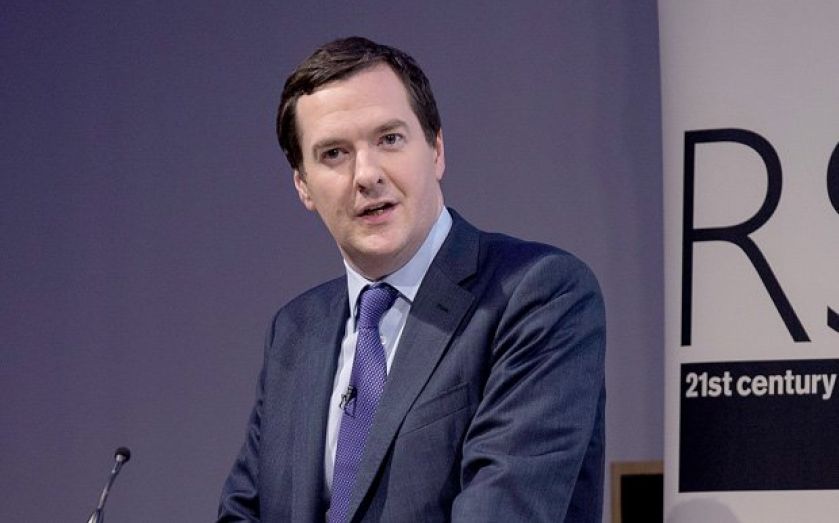Gutsy Osborne was right to gamble on a promise of further spending cuts

ED MILIBAND made a pitch for office that was so forgettable that he forgot it himself.” That line was the key message chancellor George Osborne wanted us to take away from his party conference speech yesterday. While the Conservatives have a plan to continue to eliminate the budget deficit and create the conditions for prosperous free enterprise, Labour forgot what has been the key issue of this Parliament.
What made Osborne’s speech significant, however, is that the chancellor spoke about the deficit in more than abstract terms. Many of us had feared we were due a re-run of the 2010 election. Then, both parties spent the campaign arguing about the economic impact of £6bn of “efficiency savings”, but neither were willing to spell out exactly what measures eliminating the overall £160bn deficit would require. This was undemocratic and irresponsible.
Yesterday, however, the chancellor gambled. Rather than just commit to “finishing the job”, he also set out his specific thinking on how and what sort of measures he had in mind to close the estimated £25bn hole in the next Parliament.
We already knew the chancellor’s fiscal plans would be tighter than those offered by shadow chancellor Ed Balls. The latter wants to eliminate the deficit on the current budget, while Osborne wants to run an overall surplus – even when you consider investment spending. But the choice is now clearer still: while Labour has mooted the idea of several new taxes, the Conservatives would close the gap in the public finances through spending cuts alone.
This is surely sensible. Since the 1960s, no government – whatever the political persuasion or the tax rates implemented – has been able to raise more than 38 per cent of GDP in tax. Tax revenues are currently back towards these high levels, but the state is still spending around 43 per cent of GDP. This historically large deficit has been stubbornly high despite the recent pick-up in growth – and with increasing mobility of both capital and labour, the ability to impose higher taxes without adverse economic consequences is more difficult now than ever.
But rather than just promise spending cuts, Osborne outlined where they are likely to come. In truth, these were predictably an extension of current policy. Cuts on Whitehall departments would be continued into the next Parliament, saving £13bn. Public sector pay will be further restrained. Meanwhile, working-age welfare will be cut further, with a lower benefit cap and a freeze in working age welfare in cash terms for two years.
One can quibble with these as policies. Extending departmental cuts with continued ring-fencing of health, schools, and pensions may not be possible or desirable without compromising on some of the things government currently does. Rather than salami slice, it would be better to take off ring-fences and have a new comprehensive spending review. It also seems perverse that all pensioner spending continues to be protected as working age welfare is cut further, especially given that an ageing population is a key structural cause of the long-term debt problem.
These issues show that some “tough choices” are simply dodged. But whether you agree or disagree with Osborne’s priorities, he has set out the Conservatives’ position on spending with gutsy clarity. The ball is now firmly in the court of Balls, who so far has only committed himself to fairly minor specific cuts to child benefit and ministerial pay. For the good of democracy, if nothing else, it would be good to hear what he too has in mind.